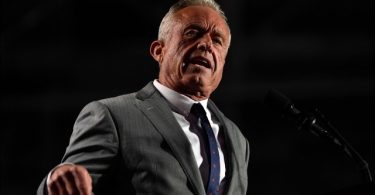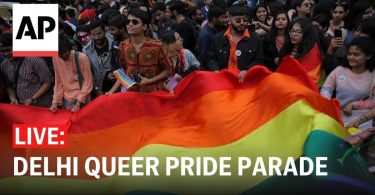Photo by equalitytexas.org/
Four LGBTQ+ advocacy organizations are urging the United Nations (UN) to investigate the State of Texas for human rights violations.
The ACLU of Texas, Equality Texas, GLAAD, and the Human Rights Campaign—along with support from the Human Rights Clinic at the University of Texas at Austin School of Law—submitted a joint allegation letter on January 22 to 17 independent experts, working groups, and special rapporteurs at the UN. The letter alleges that Texas violated international human rights law by targeting the LGBTQ community with several laws enacted in 2023.
“As a former U.S. diplomat who currently leads the ACLU of Texas, I believe there is sufficient evidence for the United Nations to investigate the barrage of civil rights abuses in Texas, especially those targeting the LGBTQIA+ community,” says Oni K. Blair, Executive Director of the ACLU of Texas. “Doing so would bring international awareness, clear recommendations to rectify human rights issues, and undeniable pressure on US public and private entities to ensure equality for LGBTQIA+ Texans in our state.”
The International Covenant on Civil and Political Rights (ICCPR), a treaty that requires nations to respect the civil and political rights of individuals, was adopted by the UN in 1966. Ten years later, the treaty was ratified by the United States, including its federal and state entities.
The 35-page joint allegation letter states that international law guarantees the rights to equality and non-discrimination through the Universal Declaration of Human Rights, the ICCPR, and the American Declaration of the Rights and Duties of Man. The letter also points out that the UN’s 1994 decision in Toonen v. Australia—which prohibited the criminalization of “homosexual activity”—outlaws discrimination on the basis of sexual orientation and gender identity.
During the 88th Texas Legislative Session, Texas passed seven laws that have a direct impact on the LGBTQ community: SB 14 (banning gender-affirming care for transgender children), SB 17 (prohibiting public universities and colleges from maintaining diversity, equity, and inclusion programs), SB 15 (blocking trans athletes from competing in collegiate sports that align with their gender identity), SB 763 (allowing school districts to use religious chaplains as guidance counselors for students), SB 12 (prohibiting minors from attending drag performances), and HB 900 (restricting access to books featuring LGBTQ characters and themes).
“Taken together, the Bills represent a systematic discriminatory policy that constitutes a concrete attack against LGBTQIA+ persons,” the joint allegation letter states.
In addition to violating international non-discrimination policies, the letter charges that Texas’s new bills also violate international rights to privacy, health, education, religious freedom, and freedom of expression. The letter concludes by outlining the requests and recommendations the LGBTQ advocacy organizations hope the UN will adopt, such as introducing stronger legislation to protect LGBTQ people at both federal and state levels.
“Today is a sad day for Texas,” says Ariel Dulitzky, director of UT Law’s Human Rights Clinic. “Our state has not satisfied its obligation to safeguard the fundamental pillars of freedom, equality, dignity, and rights enshrined by the Universal Declaration of Human Rights. We hope that with the United Nations’ involvement, the rights of LGBTQI+ persons will be fully recognized, respected, and protected in Texas.”
Ricardo Martinez, CEO of Equality Texas, says that Texas’s failure to meet the “minimum standards” of international human rights law highlights the current reality of LGBTQ rights in the state.
“When state leaders fail us, we turn to the courts and the federal government; when they fail us, we turn to the world,” Martinez says. “We cannot pretend to be a beacon of freedom when our state is slipping behind global human rights standards that have been in place for nearly 50 years. Our nation is only as strong as our weakest link, and right now, Texas is dragging our nation into a crisis that will do more than damage our global reputation, it will harm our LGBTQIA+ neighbors at home.”
GLAAD president and CEO Kate Ellis calls the laws enacted during the 88th Legislative Session a “human rights crisis.”
As a result of the 2023 legislative session and other regressive efforts, LGBTQ citizens from across the Lone Star State are forced to wonder if they can access necessities such as health care, inclusive education, creative freedoms, and more,” Ellis says. “The governor and other leaders are failing their basic responsibilities to keep all Texans safe and free. Discrimination against LGBTQ Texans, especially in the transgender community, is of international concern.”
Melodía Gutierrez, the Human Rights Campaign’s Texas State Director, said legislative attacks on LGBTQ Texans made people believe that they were not welcome nor safe in the state. “This is not only creating a situation for queer and transgender Texans,” states Gutierrez, “but it is also forcing countless families to uproot their lives and flee to other parts of the country so that their children can grow up safe as their true selves.”
Gutierrez believes that pro-LGBTQ organizations will continue advocating for equal rights in Texas and across the nation.
“More than ever before,” she says, “we will continue to activate our coalition, challenge political extremism, and reinforce the fact that LGBTQ+ Americans are fighting back and not going anywhere.”







